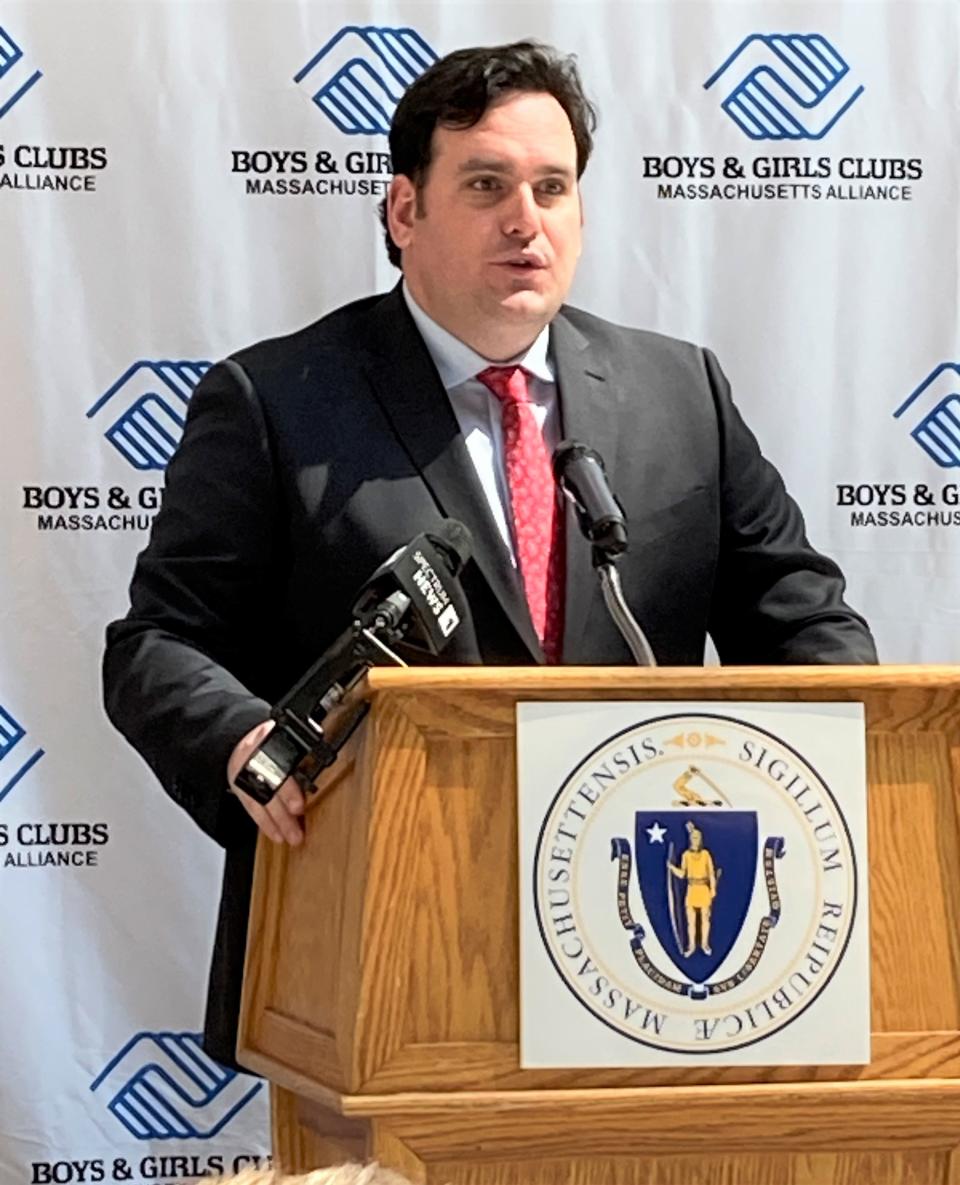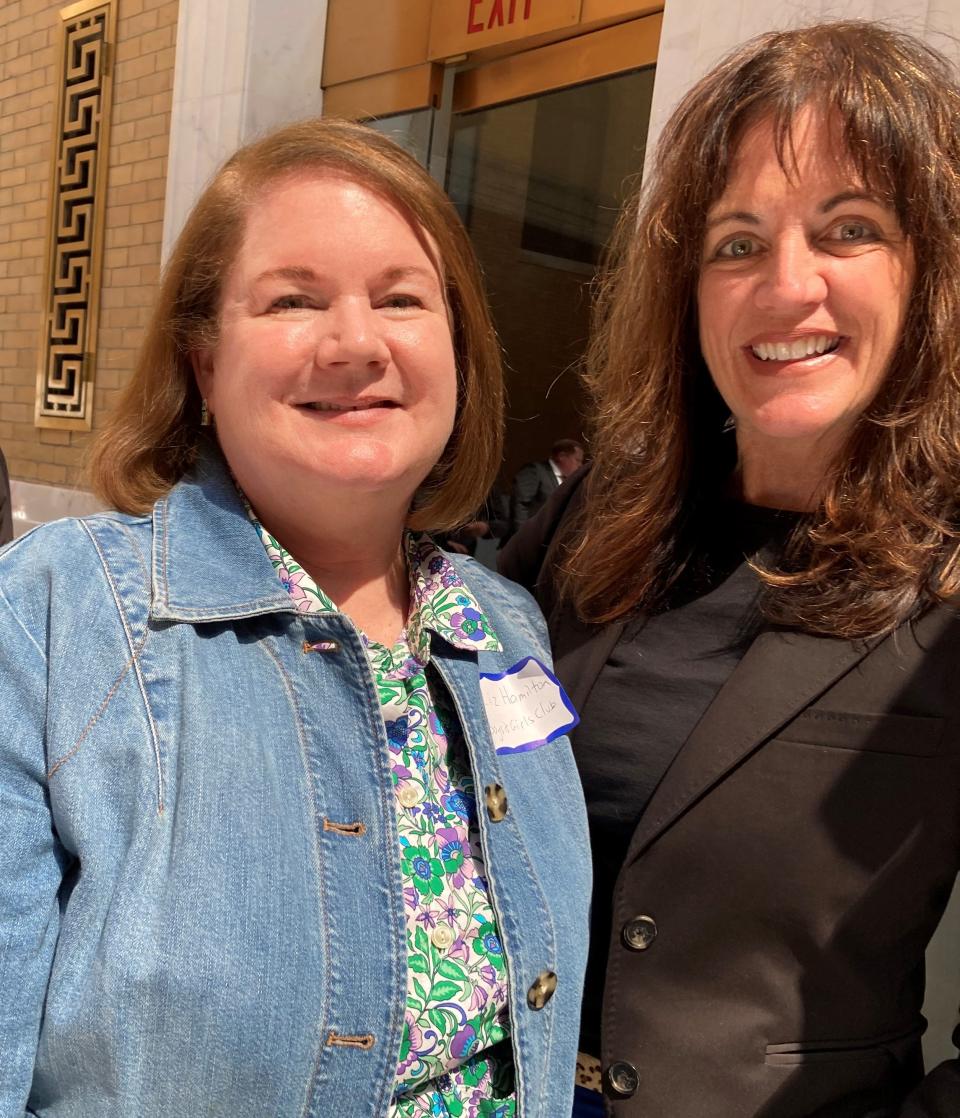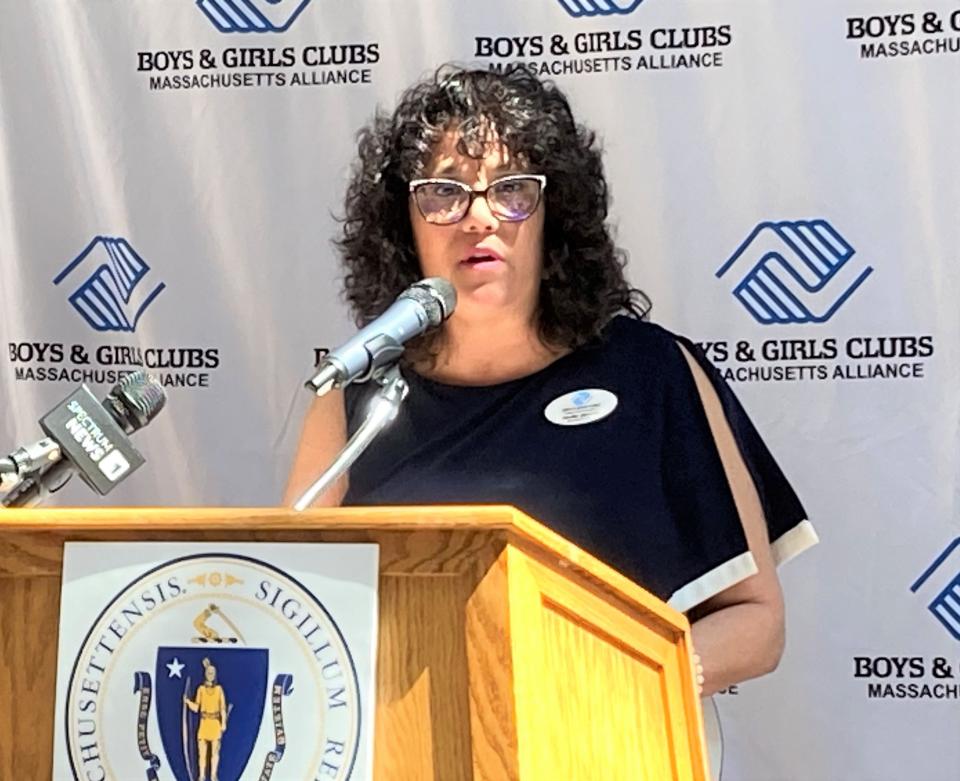Mass. youth needs supports to rebound from social, emotional, academic COVID-19 losses
BOSTON — “It’s not easy being a kid” is how Sen. John Cronin, D-Lunenburg, summed it up Monday at the yearly legislative day held in the State House for the Massachusetts Alliance of Boys & Girls Clubs.

And dozens of Massachusetts legislators agree on supporting line items in yearly budgets that direct funds to the alliance and signing on as sponsors of legislation that benefits the 40 clubs located in communities across the state. The clubs collectively support more than 100,000 youths, an increase of more than 20,000 youngsters in 2023.
The budget presented by Gov. Maura T. Healey in January included $2 million in supports for the Massachusetts Alliance. However, alliance leadership is adamant that more is needed and will press lawmakers to set the bar at $4 million for the year. A quarter of the clubs' operating budgets are funded with state and federal money.
Cronin was one of two legislators with Rep. Frank Moran, D-Lawrence, recognized by the alliance as 2024 Champions of Youth.
Cronin referenced the delays in social and emotional development, learning loss and an increase in mental health issues from anxiety to depression experienced by Massachusetts youth in the past few years triggered by pandemic-era lockdowns.
“The work you do every day is vital, indispensable,” Cronin told the leaders of member clubs attending the meeting. “You provide a healthy environment for so many kids.”
The legislator promised to continue his advocacy for the clubs and seek ways to expand and sustain the work Boys & Girls Clubs engage in on a daily basis.
The organization administers a youth survey every spring using elements of the Centers for Disease Control and Prevention’s National Youth Risk Behavior Survey to extrapolate hard data to allow clubs and the services they provide to make a difference in the lives of youngsters. The data, not just anecdotal or observational, proves that the club model is working: Clubs save lives.
And not just because Moran said so in his remarks at the luncheon.
“I know. I was there,” Moran said. The legislator said he had moved from the Beacon Courts housing development in Lawrence to the State House on Beacon Hill, and he attributed it all to the difference the club made in his life. The club, Moran said, offered supportive role models and peer supports when he was struggling.
“It’s an honor to be here and continue to uplift the youth of Massachusetts,” Moran said, also promising to continue his advocacy and support for the Boys & Girls Clubs.

Elizabeth Coveney, of the Leominster, Fitchburg Boys & Girls Club, said that one current focus of the organization is to help youngsters regain their academic footholds. Club data reveals that youngsters who participate have high graduation rates and those that graduate on time, tend to go to college.
Clubs do make a difference in youngsters’ lives, said Jennifer Aldsworth, executive director of the alliance, citing data gathered during the 2023 survey. The survey compares the difference in behaviors and life outcomes for participants.
Club members: 95% abstention from alcohol 98% abstention from binge drinking95% abstention from marijuana use94% abstention from vaping99% abstention from cigarette use (lifetime)96% abstention from prescription drug (lifetime)95% abstention from sex (last three months) | Massachusetts youth in general:78% abstention from alcohol88% abstention from binge drinking83% abstention from marijuana use82% abstention from vaping96% abstention from cigarette use (lifetime)89% abstention from prescription drugs (lifetime) 81% abstention from sex (last three months) |
In addition, youngsters participating in the clubs reported having an adult to talk to outside of their family structures, while only 64% of the state’s youngsters had similar adult role models outside of their family structures.
“Worcester’s numbers are very similar to the statewide numbers,” said Liz Hamilton, director of the club serving the Worcester, Webster and Dudley area.
The 135-year-old club serves 8,000 youngsters between ages 5 and 19 each year for $25, at three different locations on Main Street, Great Brook Valley and Plumley Village.

With youngsters having more difficulty connecting with peers, according to the report, member clubs statewide seek to foster a sense of belonging and inclusion.
“To meet the needs of our youth, we listen to them; we listen to our 5-year-olds, we listen to our 19-year-olds and we create programs with them in mind,” Hamilton said.
“In the past eight years, 100% of the kids who graduate on time were accepted to college,” Hamilton said. “Many were the first in their families to go to college.”
The clubs provide swimming lessons, arts and music outlets, athletic activities from boxing to dodgeball and even a food and clothing pantry. Counselors are available for therapy, case management services, referrals and supports. They also offer lifeguard certification training, a nursing program and other forms of job-preparation training.
In the past 10 years, with the increase in mental health issues, the clubs have hired additional social workers for counseling, therapy and case management.
“Our members have learned that it is not taboo to ask for help, that the club is a safe space where they can talk about their successes and their challenges,” Hamilton said.
In Worcester, club leadership acknowledged the use of local motels/hotels to shelter migrant families and has reached out to the population to offer support services for the children.
“I can’t imagine what it would be like to go from school to a hotel room,” Hamilton said, explaining the clubs have partnered with other agencies to mitigate the situation.
“They are all our children,” Hamilton said.
This article originally appeared on Telegram & Gazette: Gov.'s budget funds Clubs at $2 million; Clubs ask lawmakers for more

